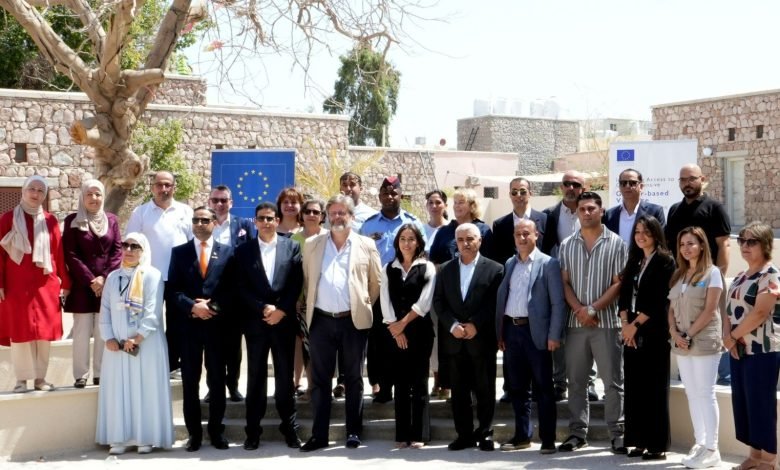
Jordan Daily – SOS Children’s Villages Jordan inaugurated Safe Homes in Aqaba Children’s Village on Sunday, marking a significant expansion of support for women survivors of gender-based violence (GBV) and their children.
According to a statement , the event was attended by Miguel de Lucas, the Spanish ambassador to Jordan; Khaled el Hajjaj, the governor of Aqaba; Himyar Abdulmoghni, the UNFPA representative in Jordan; Rana AlZoubi, the national director of SOS Children’s Villages Jordan; Mohammad AlTawarah, the director of the Directorate of Social Development in Aqaba; and several national and international institution directors and partners.
Rana AlZoubi opened the event with a welcoming speech, emphasizing the importance of providing a safe and supportive environment for women and children affected by GBV. “We place the best interest of the child at the heart of everything we do,” AlZoubi said. “The Safe Homes project is a testament to our commitment to creating a nurturing and inclusive environment that fosters recovery and reintegration within the community.”
The Safe Homes project builds on the existing Safe Homes in Amman and Irbid, inaugurated in early 2023. There are now five homes in Amman Children’s Village, one in Irbid’s Village, and two in Aqaba Children’s Village.
Himyar Abdulmoghni from UNFPA Jordan highlighted the importance of comprehensive GBV services. “The importance of safe homes is undeniable,” he said. “These stories highlight the essential role of these homes in providing protection and serving as a haven where individuals can regain their strength and restore balance to their lives.”
Mohammad AlTawarah, director of the Directorate of Social Development in Aqaba, praised the ministry’s support for these essential services. “The Ministry of Social Development has had a partnership with SOS Children’s Villages since its inception,” AlTawarah said. “Today, we celebrate the inauguration of the Safe Homes project, funded by the European Union and implemented by the Spanish Agency for International Development Cooperation (AECID) Jordan, in collaboration with the United Nations Population Fund (UNFPA) Jordan. This project provides support to women survivors of violence and their children.”
Khaled el Hajjaj, governor of Aqaba, expressed the local government’s commitment to supporting initiatives that provide protection. “Community support is essential for the success of projects like Safe Homes,” he said. “The partnership between our organizations is crucial in meeting the needs of survivors of gender-based violence and ensuring their safety and well-being.”
Miguel de Lucas, the Spanish ambassador to Jordan, thanked the European Union for its confidence in Spain with this project and highlighted the importance of coordinated efforts through the One-Stop-Shop model. “Gender inequality is at the root cause of the violence, and therefore the promotion of gender equality is a priority for the Spanish government,” he said. “The Safe Homes in Aqaba will give a better chance to victims and survivors of being protected in southern Jordan.”
Following the speeches, attendees visited the site, marking the official inauguration of the Safe Homes.
The Safe Homes project is part of the “Improving Access to Comprehensive GBV Services in Jordan” initiative, funded by the European Union and implemented by AECID Jordan in collaboration with UNFPA Jordan. Key partners include the National Council for Family Affairs, the Justice Center for Legal Aid, the Institute for Family Health, and the EuroMed Feminist Initiative. Each partner provides crucial support in different areas, enhancing the comprehensive nature of the services provided by the project.
The project offers a “one-stop-shop” safe shelter service for women survivors of GBV and their children, adhering to international guidelines for deinstitutionalization. It promotes a community-based integrated model focused on recovery and reintegration. The project provides services including education, health, psychological and legal support, and economic empowerment, enabling mothers and children to achieve their goals and build self-esteem.
The services are free and available to all women and their children regardless of nationality or religion. Cases are referred by the Family Protection Department, Ministry of Social Development, or through project partners. The shelter period is 90 days, followed by aftercare to minimize the risk of returning to the system.
The team managing the Safe Homes is committed to delivering the message to women and children: empowerment is achieved through skill development, goal setting, and self-respect.
